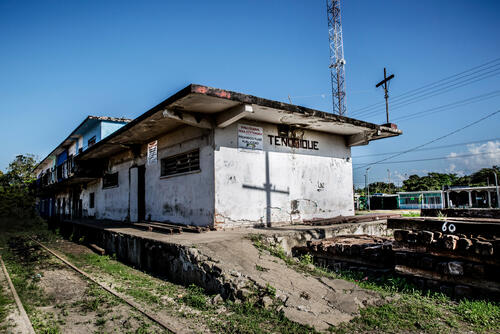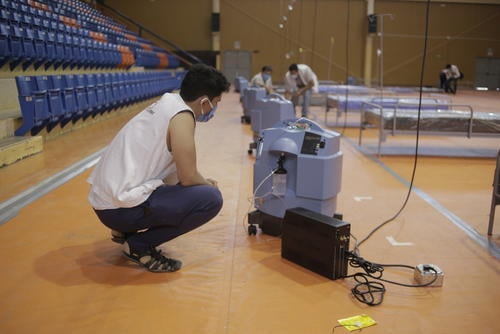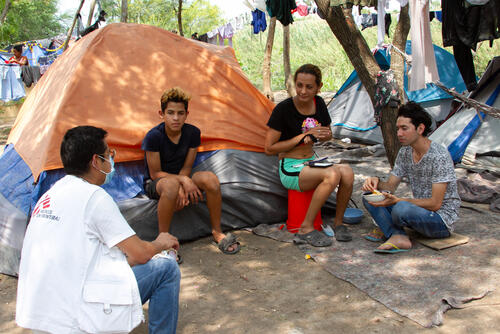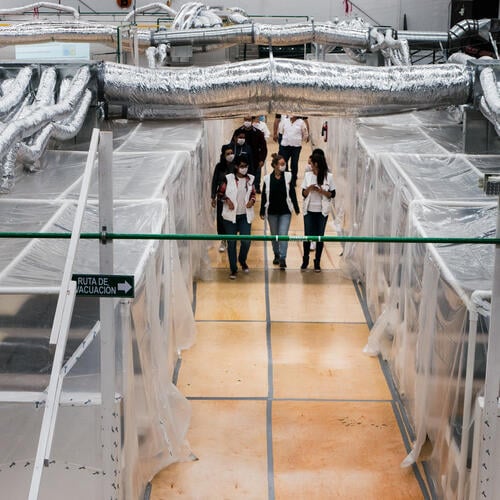Last week, MSF provided medical and psychological care to 11 young Hondurans who were kidnapped and physically and sexually assaulted in Tenosique, Mexico, by a criminal group. Criminal groups operate with impunity throughout the southern state of Tabasco.
Despite their injuries and the very real danger that they will face more suffering while in Mexico, all but one of them have decided to leave Tenosique and continue their journeys to the United States in search of asylum.
The events occurred after they tried to evade the Mexican National Guard border controls, which have increased in recent days on the southern border of Mexico.
These young people have chosen to continue their journeys knowing that they will most likely suffer other violent incidents while in Mexico.Sergio Martín, MSF head of mission in Mexico
As soon as they crossed the border from Guatemala into Mexico, in two groups of five and six, members of the gang offered to help them with their journey for 800 pesos (about US$42) each.
They were taken by motorcycle to a house where they were tied up and assaulted. They were held captive for about 24 hours, during which time they were beaten, sexually assaulted, and tortured until their relatives paid for their release.
“These young people have chosen to continue their journeys knowing that they will most likely suffer other violent incidents while in Mexico,” says Sergio Martín, MSF head of mission in Mexico. “This is a clear example of the dangers they are exposed to in Mexico and the desperate need that people have to escape the violence and extreme poverty in their countries.”
Denying these people asylum in the United States or forcing them to wait in Mexico for the resolution of their applications puts their lives at risk.Sergio Martín, MSF head of mission in Mexico
“This kidnapping is not an isolated incident. MSF has warned about the increase in violence, torture and abuse against migrants in Tabasco,” says Martín. “This is far from a safe migration route; our teams have witnessed how the militarisation of the border by the Government of Mexico is increasing the vulnerabilities of migrants along the route.”
“Central American migrants are targeted by criminal organisations in Mexico for being migrants and Central Americans,” says Martín. “Denying these people asylum in the United States or forcing them to wait in Mexico for the resolution of their applications puts their lives at risk.”






